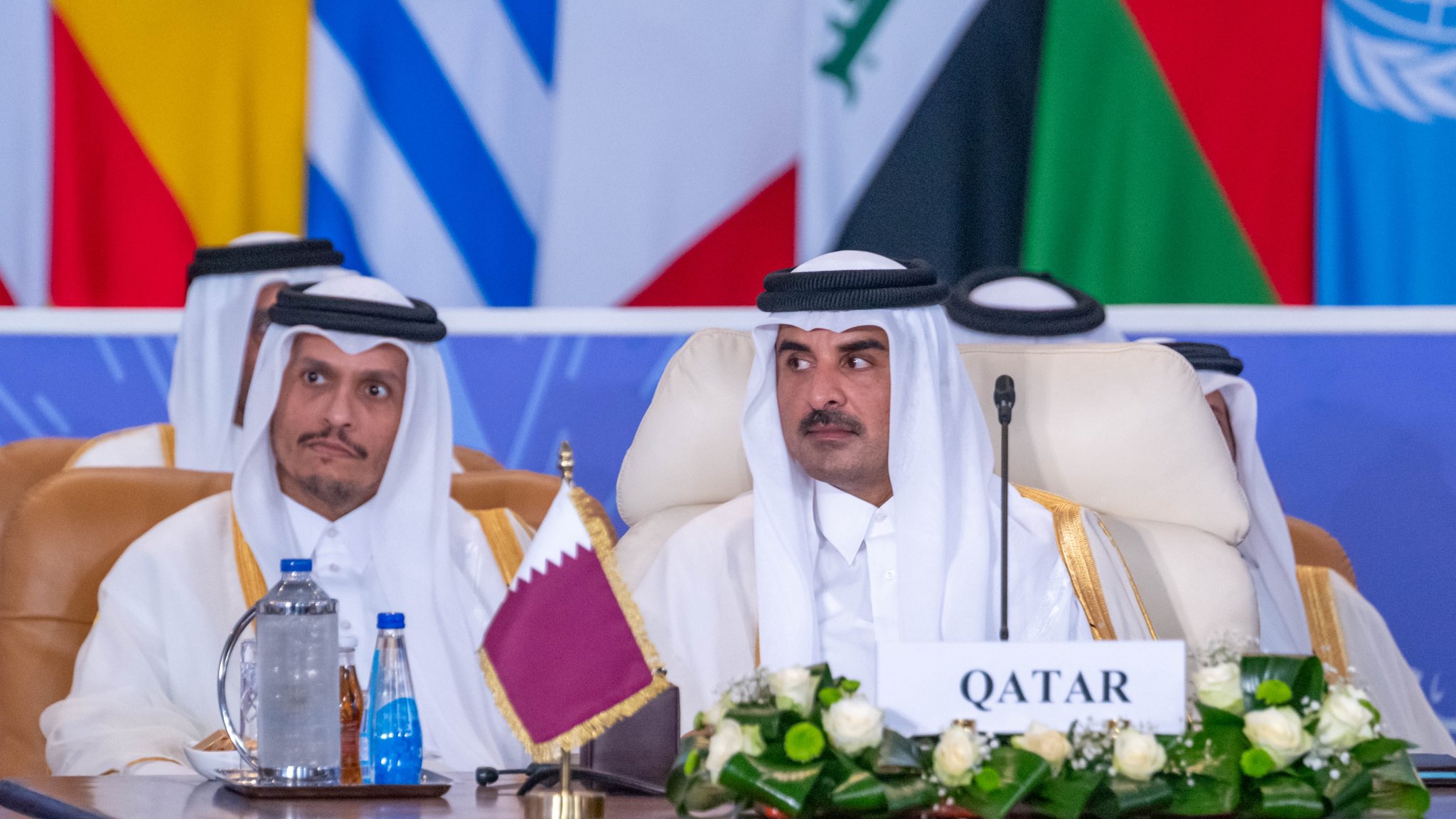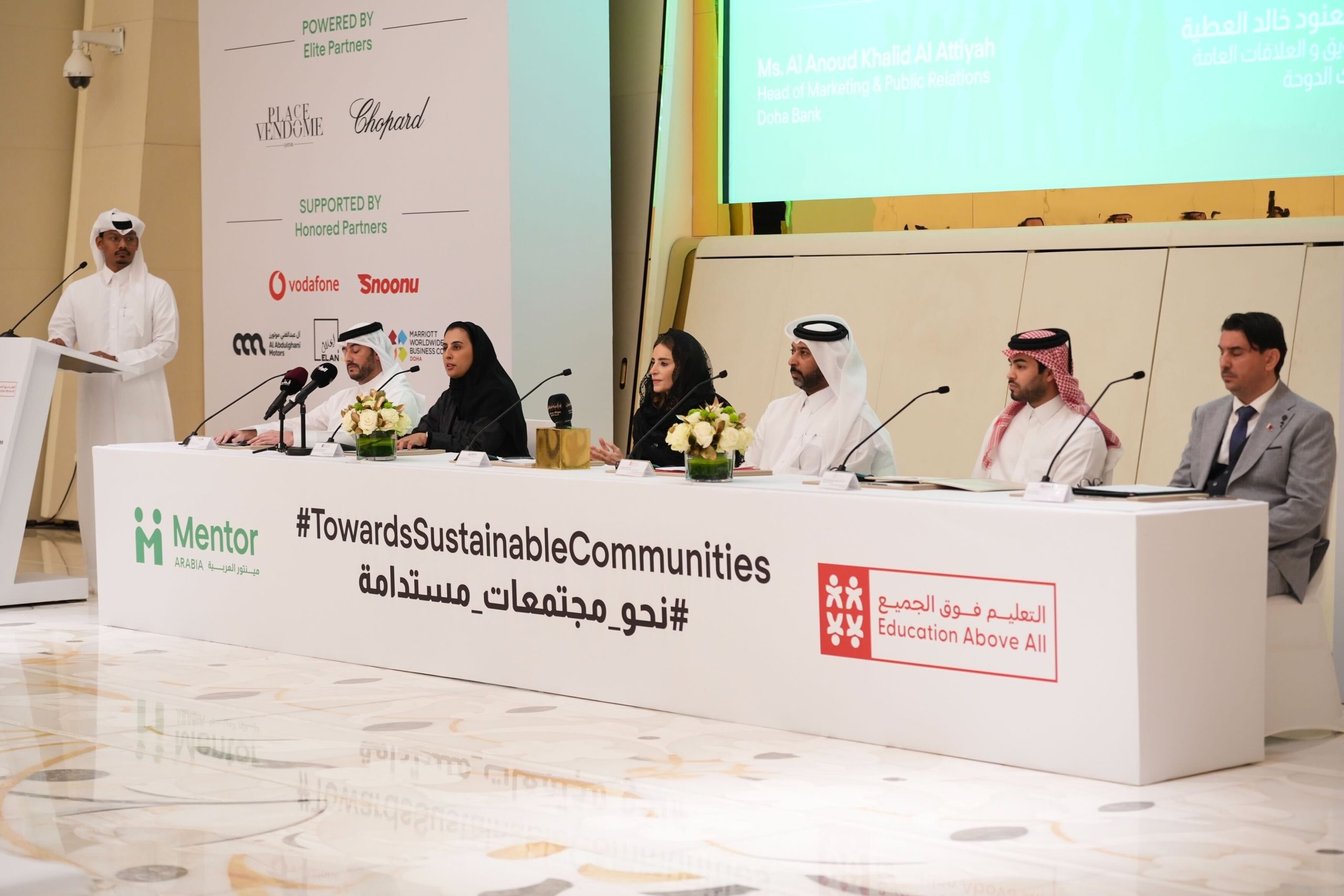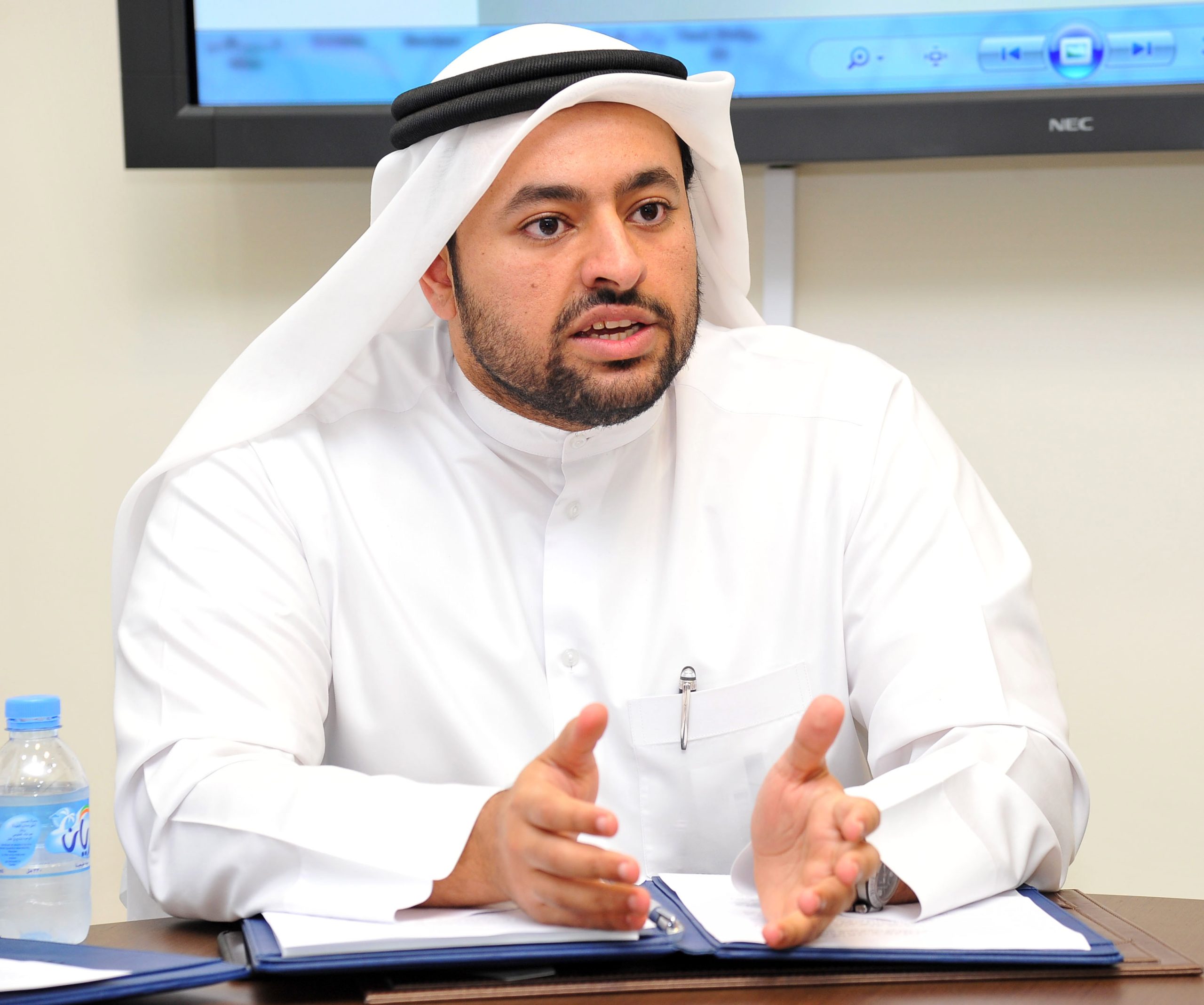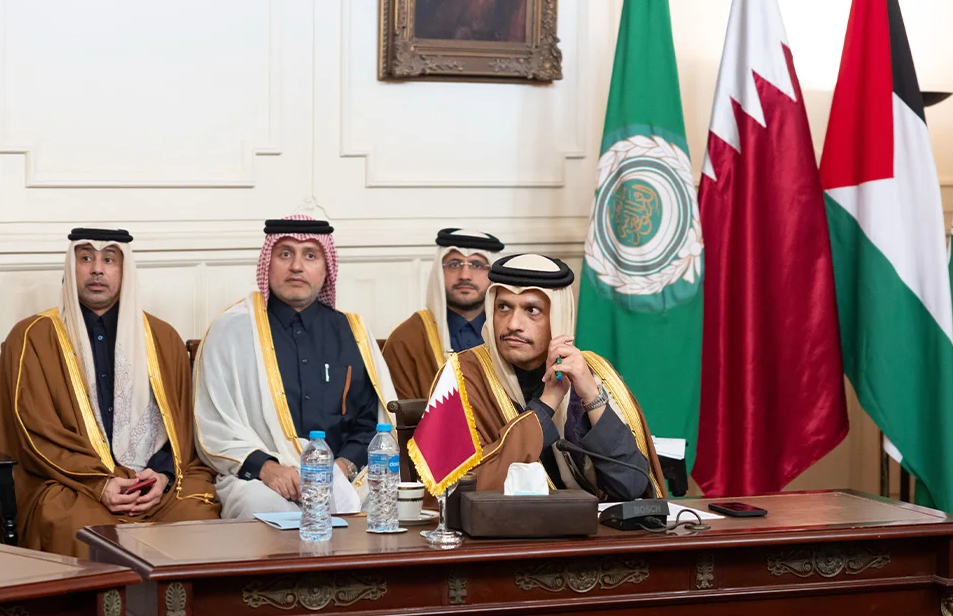Sisi’s spokesman confirmed a divide over the final communique’s text, in which there was a split between those who wanted to condemn one side while others called for a neutral statement.
Qatar’s Amir Sheikh Tamim bin Hamad Al Thani was not scheduled to give a speech at the Cairo Peace Summit on, Qatari journalists confirmed on Saturday, dismissing speculations on the leader’s departure from the high-level meeting.
“His Highness Sheikh Tamim bin Hamad did not have a scheduled speech at the Cairo Peace Summit, and that was not mentioned anywhere,” prominent Qatari journalist Jaber Al Harmi said in a post on X, formerly known as Twitter.
Al Harmi’s comments were in response to a post by Gamal Sultan, the chief editor of Egypt’s Al Mesryoon newspaper, who claimed that Egyptian President Abdel Fattah El-Sisi had “deliberately delayed” Sheikh Tamim’s speech, prompting him to leave immediately after the opening session.
Sultan’s post echoed other reports that alleged Sheikh Tamim had left the summit in Egypt without giving a speech, in what they claimed to be an indicator of the Qatari ruler adopting a specific stance at the event.
However, Al Harmi noted that Qatar was not the only country to attend without delivering a speech at the high-level gathering in Egypt.
“By the way Qatar was not the only one who did not speak in the opening session of the summit. There were other countries that attended at the level of head of state, but they did not have a speech. Usually the norm is that countries request to give speeches,” Al Harmi explained.
“Therefore, what is being circulated regarding a speech by the amir of Qatar or reports on a Qatari position on the summit, is incorrect,” Al Harmi stressed.
Sheikh Tamim arrived in Cairo on Saturday in response to an invitation by President Sisi and was pictured at the hall alongside other world leaders and diplomats.
Notably, Qatar and Egypt have been at the forefront of de-escalation efforts since the onset of the Israeli war on Gaza that started on 7 October. Doha and Cairo have both led successful diplomatic efforts throughout past Israeli escalations in Gaza that resulted in several ceasefires, though diplomats believe the latest war is beyond mere escalations.
Since the beginning of the Israeli war on Gaza, the occupation forces (IOF) have killed at least 4,385 Palestinians, including at least 1,756 children.
A divided stance
Other leaders that attended the summit in Egypt included Palestinian President Mahmoud Abbas, the United Arab Emirates’ President Sheikh Mohammed bin Zayed Al Nahyan, Bahrain’s King Hamad bin Isa Al Khalifa, and Jordan’s King Abdullah II.
The summit convened to discuss the latest developments in Palestine, particularly the ongoing and intense Israeli aggression on Gaza that has raised further concerns over a potential spillover into the wider region.
However, the summit ended without the announcement of a ceasefire as Sisi’s Spokesman Ahmed Fahmi confirmed a divide over the final communique’s text. The official said there was a split between those who wanted to condemn one side and those calling for a neutral statement.
“The points of contention in the Cairo Peace Summit related to the level of condemnation. There are those who want to condemn one party, as if the narrative [the war] began with a specific party on a specific day, in reference to the Al-Aqsa Flood Operation that was carried out by the Al-Qassam Brigades of the Hamas movement,” Fahmi told Egyptian media.
Fahmi was referring to the 7 October operation that was carried out by the Al-Qassam Brigades—Hamas’ armed wing. The historic operation saw the Palestinian resistance group break out from the besieged Gaza Strip and into occupied areas through air, land and sea attacks.
The resistance group captured at least 200 Israelis as part of the operation,
Since then, Israel has used the incident as the pretext for its brutal war on Gaza.
Commenting on the summit, Fahmi noted that it “ aimed to mobilise consensus from the international community regarding what is happening in the Gaza Strip” and did not necessarily intend on ending “with outcomes or a consensual declaration among all participants.”
However, Fahmi added that there is no disagreement among the participants at the summit regarding the entry of aid into the Gaza Strip, respect for civilian rights, and the two-state solution.
The summit started began with an opening address by President Sisi, who expressed his concern over the double-standard response over the catastrophe in Gaza.
“Where are the values of the humanitarian civilisation that we have built over the years and centuries? Where is the equality between innocent people without double standards?” El-Sisi said.
Egypt has been heavily concerned over a potential refugee crisis that could be triggered as a result of Israel’s war on Gaza, with reported plans to relocate the Strip’s population to the Sinai peninsula. Sisi told leaders at the summit that he is against moving Gaza’s residents to the Egyptian territory.
Meanwhile, Jordan’s King Abdullah II started his remarks by slamming the “collective punishment of a besieged and helpless people”, referring to Gazans.
“Anywhere else attacking civilian infrastructure and deliberately starving an entire population of food, water, electricity and basic necessities would be condemned, accountability would be enforced immediately, unequivocally. It has been done before, recently, in another conflict, but not in Gaza,” King Abdullah said.
He added: “Today Israel is literally starving civilians in Gaza but for decades Palestinians have been starved of hope, of freedom and of the future.”
The bold remarks come despite Jordan holding diplomatic ties with Israel. However, he did reiterate the need for peace for Palestinians and Israelis alike.
“Because when the bombs stop falling, Israel is never held accountable, the injustices of occupation continue and the world walks away until the next round of violence,” the Jordanian leader noted.
Also in attendance, the United Nations Secretary-General Antonio Guterres called for an immediate “humanitarian ceasefire”.
“Immediate, unrestricted and sustained humanitarian aid for besieged civilians in Gaza. Immediate unconditional release of all hostages in Gaza. And immediate and dedicated efforts to prevent the spread of the violence, which is increasing the risk of spillover,” the UN chief said.







